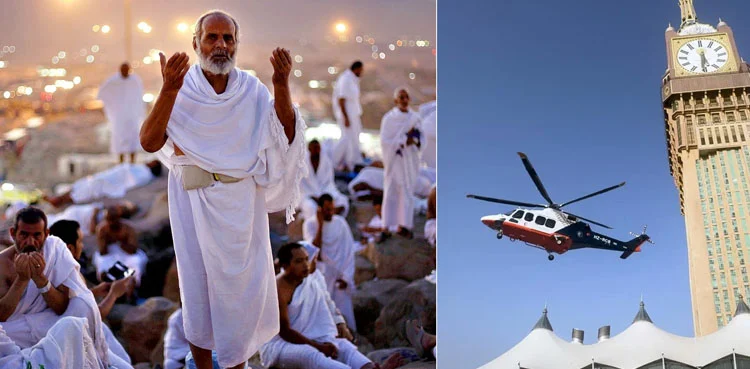The Ministry of Hajj and various government agencies in Saudi Arabia have successfully finalized arrangements for the 2024 Hajj pilgrimage, ensuring a smooth and safe experience for millions of pilgrims who have already arrived in Makkah. These meticulous preparations underscore Saudi Arabia’s commitment to facilitating the spiritual journey of Muslims from around the world.
Enhanced Health and Safety Measures
According to a report by the Saudi Press Agency (SPA), the Saudi Red Crescent Authority has introduced an innovative air ambulance service around the Al-Haram Mosque. This service is a critical component of the Kingdom’s comprehensive health and safety strategy for Hajj 2024, aimed at ensuring the well-being of all pilgrims.
Minister of Health Fahad Al Jalal, who is also the Chairman of the Board of Directors of the Saudi Red Crescent Authority, was present at the launch of this service. The air ambulance initiative is designed to provide rapid medical response and emergency services, significantly reducing the time taken to transfer patients to specialized health centers. This swift response capability is crucial given the large influx of pilgrims and the potential for health emergencies.
Integrated Health System
The air ambulance service is part of an integrated health system that begins with the receipt of an emergency call and extends to the provision of on-site medical care and the transportation of patients to health facilities. Seven helicopters have been strategically deployed in the vicinity of Masjid al-Haram and other key Hajj sites. These helicopters are equipped to reach injured or ill pilgrims swiftly, administer emergency medical services, and transport them to health centers efficiently.
The service’s strategic positioning around Masjid al-Haram ensures that it can quickly respond to emergencies, thereby enhancing the overall safety and security of the pilgrims. This initiative highlights the Kingdom’s dedication to leveraging advanced medical technologies and services to support the Hajj pilgrimage.
Entry Regulations and Security Measures
In addition to health services, strict entry regulations have been implemented to manage the flow of people into Makkah. Only individuals with valid permits are allowed to enter the city, and the authorities are rigorously checking these permits to ensure compliance. This measure is part of a broader strategy to maintain order and security during the pilgrimage.
To further support this effort, motorcycles have been banned from entering Makkah to reduce congestion and enhance safety. Numerous check posts have been established at key locations in the city and on routes leading to Makkah. These check posts are instrumental in controlling the entry of unauthorized vehicles and individuals, thereby ensuring a secure environment for the pilgrims.
Strategic Planning and Execution
The Saudi government’s meticulous planning and execution of Hajj arrangements demonstrate its commitment to providing a safe, efficient, and spiritually fulfilling experience for pilgrims. The integration of modern technology, such as the air ambulance service, reflects a forward-thinking approach to managing one of the largest annual religious gatherings in the world.
The Ministry of Hajj and other involved agencies have worked tirelessly to address all aspects of the pilgrimage, from health services and security to transportation and accommodation. This holistic approach ensures that every facet of the pilgrim’s journey is well-managed, allowing them to focus on their spiritual duties without undue concern for their safety or well-being.
As millions of pilgrims converge on Makkah for Hajj 2024, the comprehensive arrangements put in place by the Saudi government provide a robust framework for a safe and seamless pilgrimage. The introduction of the air ambulance service and other health and safety measures exemplifies the Kingdom’s dedication to enhancing the Hajj experience through innovation and strategic planning. With these preparations, Saudi Arabia continues to uphold its role as the custodian of the Two Holy Mosques, ensuring that pilgrims can perform their religious obligations with peace of mind.


